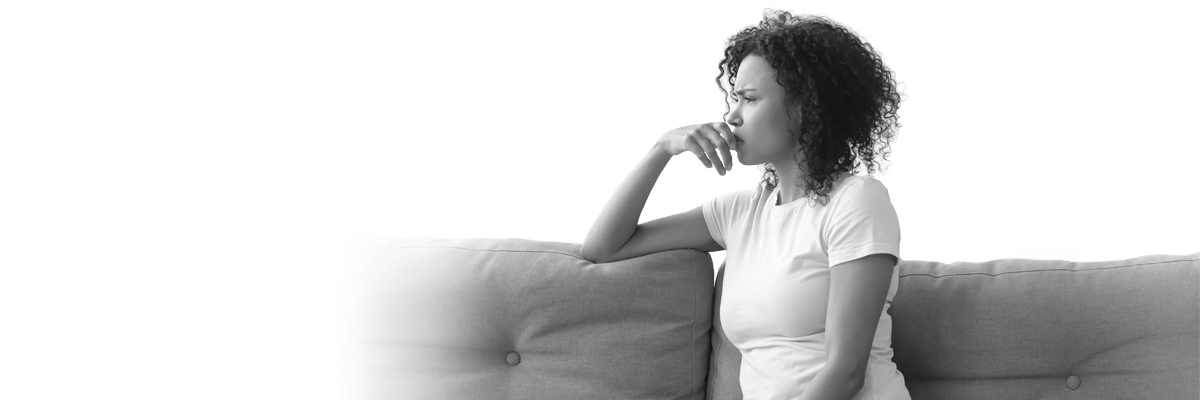Intrusive thoughts and perinatal OCD

Intrusive thoughts, otherwise known as “scary thoughts”, are unwanted negative thoughts “what if I burn the baby in the bath?”and images (picturing the baby falling off the bed).
They can pop into our head, interrupting other thoughts or activities and are anxiety-driven. They’re hard to dismiss and often come back again and again.
Intrusive thoughts are more common when we’re stressed – and can lead to great shame. This is because they’re often so different to how we might actually think or feel.
Intrusive thoughts after having a baby
It’s important to know that experiencing intrusive thoughts after having a baby is common. Sometimes it’s a sign of depression, anxiety or obsessive-compulsive disorder.
Research has shown that in the postnatal period, thoughts are often related to harm coming to your baby. Sometimes they may be around something bad accidentally happening to your baby, but they can also be thoughts of hurting your baby on purpose – even if you find this highly distressing.
“My eyes would be drawn to the sharp carving knife in the second drawer in the kitchen. I wondered if such a knife could pierce my little daughter’s soft skin.”
COPE Ambassador, Jessica Rowe
How common are intrusive thoughts?
Most mothers report thoughts of accidentally harming their baby – for example dropping them while walking down stairs. Around 50 per cent of mothers report unwanted, intrusive thoughts of harming their baby on purpose.
Some of the thoughts or images might be:
- Shaking the baby.
- Hitting the baby too hard during winding.
- Throwing the baby to the ground or against a wall.
- Drowning the baby in the bath.
- Smothering the baby, for example, with a baby’s milk bottle or pillow.
- Releasing the baby in a pram from the top of a hill/into traffic.
What about dads and non-birthing partners?
While less research has been conducted in this area, we do know that dads are less likely to experience these thoughts, find them less upsetting, but can also find them more difficult to talk about.
What is perinatal OCD?
If your thoughts are unwanted, distressing, or repetitive and interfere with functioning you may be experiencing perinatal OCD. Some parents may find that previous OCD symptoms worsen during pregnancy or after having a baby while others may experience it for the first time.
A recent study estimated that eight per cent of postpartum women report symptoms that meet criteria for a diagnosis of OCD at some point during pregnancy, which increased to 17 per cent in the 38 weeks after delivery.
There are three main parts to OCD
- Obsessions – thoughts or images that keep coming into your mind
- Anxiety
- Compulsions – thoughts or actions you repeat to reduce your anxiety
Obsessions and compulsions are often (but not always) focused on the baby – for example worrying about not sterilising your baby’s bottle, or checking your baby through the night to make sure they’re still breathing.
Perinatal OCD may also stop you from enjoying your pregnancy and/or being a mother so it’s important to seek help from your GP if you’re distressed.
Perinatal OCD is a very treatable condition. Treatment may include Cognitive Behaviour Therapy (CBT) and in some cases medication.
How do I know if I need help?
While there is no evidence to suggest that parents act on their unwanted thoughts, images or impulses, the experience can be extremely upsetting. In addition, the shame and stigma around having these types of thoughts can prevent people from speaking about them and seeking help.
I realised negative thoughts did not mean negative actions and I didn’t have to be triggered by my own mind.
COPE Ambassador Lara Hyams
For many new parents, the thoughts go away over time. Others, however, may find they need further support.
Your GP, or mental health professional will also be able to assess you for anxiety, depression or perinatal OCD and refer you to specialised support if you need it.
Good mothers DO think bad thoughts and you are not alone.
